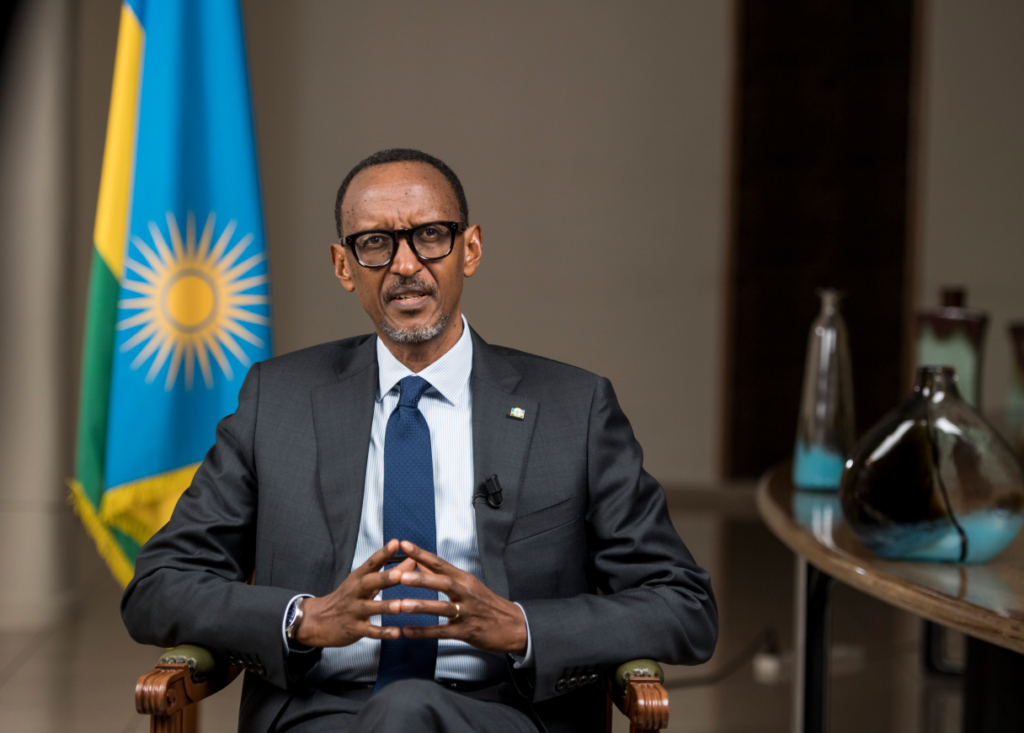Rwanda’s President Paul Kagame, both feared and admired, is set to extend his 24-year rule in an election analysts predict he will win by a landslide.
Kagame, 66, has dominated every election since becoming president in 2000, securing over 90% of the vote in each. In 2017, he achieved a staggering 99% victory.
Facing off against only two authorised contenders, Kagame’s path to victory seems clear. His dominance in Rwandan politics began when his rebel forces took power at the end of the 1994 genocide, which claimed the lives of approximately 800,000 ethnic Tutsis and moderate Hutus. Since then, Kagame has been praised for revitalising the country and promoting unity.

“Rwanda was 30 years ago essentially written off – but thanks to some extent to the leadership under Kagame and his ruling party Rwanda managed to build some stability,” noted Dr. Felix Ndahinda, a scholar on the Great Lakes region.
However, critics accuse Kagame of suppressing opposition, including orchestrating cross-border assassinations of dissidents. Kagame vehemently defends Rwanda’s human rights record, asserting the country’s respect for political freedoms. Despite this, some analysts view the election as a mere formality.
Approximately nine million people are registered to vote, with at least two million being first-time voters. Provisional results are expected by Tuesday morning. Voters will elect the president and 53 members of the lower House of Parliament on Monday, with 27 other MPs to be elected the following day.
“I am very excited about voting for my first time, I can’t wait,” said Sylvia Mutoni, reflecting the sentiment of many young Rwandans for whom Kagame is the only leader they have known.
The two opposition candidates, Frank Habineza of the Democratic Green Party and independent Philippe Mpayimana, garnered just over 1% of the vote between them in the 2017 election. Despite the odds, Habineza remains hopeful. “I believe democracy is a process,” he told the BBC Focus on Africa podcast. “People still have a fear of expressing their opinions. I’m fighting for freedom of speech, freedom of the media.”
Some Rwandans are listening. Celestin Mutuyeyezu, 28, previously supported Kagame but has been swayed by Habineza’s promises to tackle unemployment. “He said great things on fighting unemployment, and he’s got me,” Mutuyeyezu stated.
Yet, defeating Kagame remains a formidable challenge. Diane Rwigara, a vocal critic of Kagame, was barred from running in this election as she was in 2017. “Rwanda is portrayed as a country where the economy has been growing. But on the ground, it’s different. People do lack the basics of life, food, water, shelter,” she told the BBC.
Despite high rates of youth unemployment, Rwanda is one of Africa’s fastest-growing economies. Kagame is credited for this economic transformation and for maintaining stability. The country is globally recognized for its clean capital city and having the world’s highest proportion of female MPs at 61%.
In “Rwanda, Inc.,” American authors Patricia Crisafulli and Andrea Redmond describe Kagame more as a company CEO than a political leader, citing his drive for excellence in every sector. Kagame is also a shrewd politician, often criticising the West while cultivating useful allies, such as working with the UK on its now-abandoned asylum seeker deportation scheme. Rwanda has increased its international appeal through sports, culture, and entertainment, hosting the African Basketball League and the Commonwealth Heads of Government Meeting in 2022.
However, Kagame’s diplomacy has a tougher side. A recent UN report claimed there were some 4,000 Rwandan troops in the Democratic Republic of Congo, accused of backing the M23 rebel group. Rwanda did not deny the allegation, instead criticising the DR Congo government for lacking the political will to resolve the crisis.
On the campaign trail, Kagame has promised to protect Rwanda from “external aggression” amid tensions with neighbouring DR Congo and Burundi.









